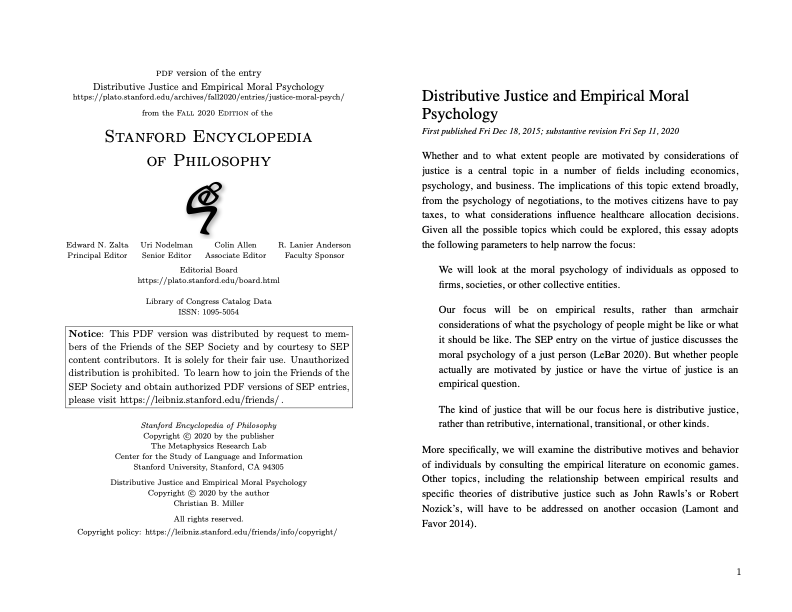The previous post in this series looked at how Elon Musk’s attempt to transform X (formerly Twitter) into a digital town square—grounded in absolute free speech—ironically undermined the very epistemic foundations his vision depended on. The nature of today’s digital platforms, combined with Musk’s abandonment of content moderation, doesn’t allow for the epistemic friction necessary to engage critical thinking.
This post continues the theme of how modern communication environments compromise our epistemic processes, by curbing epistemic friction. But here, we turn from a platform’s architecture and governance to how its users shape discourse—specifically, the increasingly pervasive phenomenon of incivility in online communication.
For the billions of people who engage with social media, exposure to hostile communication is almost unavoidable. From insults and dismissive sarcasm to trolling and gaslighting, toxic speech has become a recognizable feature of online life.
While the scope of online toxic communication is notoriously broad, complex and ambiguous– difficult to define, hard to categorize and hard to substantiate—it is clear that it is on the rise, demonstrated through numerous peer-reviewed longitudinal studies and other research papers. Much important work is being done across multiple disciplines to understand and combat toxic communication, especially more obvious speech acts of aggression, hate and cyberbullying. However, while we are very quick to decry and address extreme toxic speech acts, the phenomenon of low-level incivility becoming a routine feature of online interaction, seems to be happily tolerated. This is a problem.
What is Civility and Why is it Important?
Merriam Webster defines civility as “a polite act or expression; courtesy” and incivility as “a rude or discourteous act” but the deeper meaning of civility, and its role in public discourse is much more important than being “polite” or “nice.” As political theorist Teresa Bejan explains, civility historically means respectful participation in shared discourse—particularly in the face of disagreement. Its roots lie in the concept of good citizenship, not mere etiquette.
In this view, civility is not about avoiding offense or soothing egos; it is not about being kind or good natured, rather it is about ensuring that dialogue can continue even in uncomfortable exchanges. As such it is a conversational norm that makes argument and counterargument possible. As Teresa Bejan says, “At its most basic, civility is the minimal conformity to social norms of respectful behavior that are needed to keep a conversation going.”
In this way, civility supports dialogue throughout disagreement. It supports epistemic friction. It supports the processes through which we engage, learn, refine beliefs, and evaluate competing perspectives. Incivility undermines these processes. Without civility, the conversational space collapses, and with it, the chance for crucial engagement with opposing views that helps uncover deeper truths.
The Epistemic Costs of Incivility
The normalization of incivility in online communication—particularly the kind of low-level, toxic exchanges that now pass as routine conversation—is deeply concerning. It’s as if hostility is increasingly regarded as intrinsic to the digital environment, with complaints about rudeness often met with dismissive remarks like, “Is this your first day on the internet?” or “Your skin’s too thin to be online!”
Comments like these trivialize hostility as just part of the digital experience. A necessary evil of digital life. And often a single hostile reply will trigger a cascade of pile-on responses as other social media users compete to outdo each other in sarcastic or rude responses.
This collective tone mimics a kind of digital pillory, a modern version of the medieval stocks, where offenders are shamed in the public square and pelted with verbal “rotten vegetables.”
What are the consequences of this? Unfortunately, the cost is more than hurt feelings and bruised egos.
Self-silencing and Retreat
What happens when incivility becomes the default tone of digital discourse? For many—especially conflict-averse individuals or those from marginalized groups—the result is self-silencing. They retreat from engagement not because their perspectives lack value, but because the environment becomes too hostile for them to want to stay.
This has serious epistemic consequences. When individuals withdraw, we lose valuable testimony, particularly from minority perspectives. Dissent is stifled, and conversation becomes dominated by the loudest or most aggressive voices, fostering groupthink. The discursive space narrows, as people confine themselves to safe circles, reducing opportunities for meaningful cross-perspective engagement.
As we know, epistemic friction is central to knowledge refinement. Incivility undermines this process in several ways:
- First, it shuts down testimonial exchange. When a speaker is met with sarcasm, personal attacks, or derision rather than thoughtful engagement, they are unlikely to contribute again.
- Second, it violates norms of intellectual humility. Philosopher Alessandra Tanesini highlights the importance of justifying one’s views and responding to criticism, in constructive dialogue—norms that incivility bypasses through aggression or deflection.
- Third, incivility fosters conformity bias. Hostile environments suppress open inquiry, prompting individuals to align with dominant narratives to avoid conflict, rather than through genuine persuasion.
- Finally, those most vulnerable—racial minorities, women, LGBTQ+ individuals, and people with mental health conditions—are often the first to disengage or self-censor. As their voices disappear, public discourse becomes more homogenous, less representative, and increasingly polarized.
Why This Matters for Democracy
Democracy isn’t just about voting; it’s about ongoing dialogue across difference. Philosopher, psychologist and educational reformer, John Dewey, argued that in order for democracy to flourish, the culture of a society must support it. That includes our habits of speaking, listening, disagreeing, and debating.
Teresa Bejan refers to incivility causing the self-silencing of individuals as “a disaster in a tolerant society, a disaster in a democracy.” Likewise, political philosopher Elizabeth Anderson says “Intolerance, abuse, calling of names because of differences in opinion… are treason to the democratic way of life.”
Civility is not the enemy of free speech; it is the enabler of meaningful speech. Without it, we are not having conversations—we are shouting into a void or weaponizing words to shut others down.
The goal is not to sanitize all disagreement or avoid uncomfortable truths. On the contrary, robust disagreement is essential to democratic knowledge. But for epistemic friction to occur, we need the right conversational conditions: mutual respect, acknowledgment of equality, and shared norms of engagement.
We must stop treating digital incivility as an inevitability. We must not allow it to become a conversational norm in digital spaces. Instead, we must recognize it for what it is: a systemic threat to our ability to think clearly, argue honestly, and learn from one another.
In the digital age, the stakes of every conversation are higher than we think. The tone we set, the norms we uphold, and the civility we extend are not just matters of manners—they are the preconditions for knowledge, reason, and democracy.
The post The Cost of Rotten Speech: Knowledge, Reason & Democracy first appeared on Blog of the APA.
Read the full article which is published on APA Online (external link)







